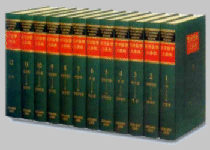First 30,000 pages of online encyclopedia unveiled
 Washington, Feb 26: The first 30,000 pages of the online Encyclopedia of Life have been unveiled at the prestigious Technology, Entertainment and Design (TED) Conference in Monterey, California on Feb 27.
Washington, Feb 26: The first 30,000 pages of the online Encyclopedia of Life have been unveiled at the prestigious Technology, Entertainment and Design (TED) Conference in Monterey, California on Feb 27.
The free Internet encyclopedia, www. eol. org, aims to eventually list all 1.8 million known species of life in a 100 million dollars 10-year project begun in 2007.
The EOL is being developed by a unique collaboration between scientists and the general public, and is intended as tool for scientists and policymakers, and a fascinating resource for anyone interested in the living world.
By making it easy to compare and contrast information about life on Earth, the resulting compendium has the potential to provide new insights into many of life’s secrets.
On the large canvas, EOL will be a microscope in reverse, or ‘macroscope’, helping users to discern large-scale patterns.
By aggregating for analysis information on Earth’s estimated 1.8 million known species, scientists say the EOL could, for example, help map vectors of human disease, reveal mysteries behind longevity, suggest substitute plant pollinators for a swelling list of places where honeybees no longer provide that service, and foster strategies to slow the spread of invasive species.
Most importantly, the EOL will be a foundational resource for helping to conserve the species already known and to identify millions of additional species that haven’t yet been described or named.
At its core is the knowledge about the world’s species that has been discovered by scientists over the last 250 years. By putting this information all together in one place, EOL hopes to accelerate our understanding of the world’s remaining biodiversity.
EOL will illuminate patterns in biodiversity, promising knowledge comparable in impact to that gained after the microscope’s invention in the 1600s. The EOL “macroscope” will have a catalytic effect on comparative biology, ecology and related fields. It will also be the ultimate online field guide, complete with links to DNA barcoding and other information of interest and use to everyone from professional scientists to birdwatchers and gardeners.
“There are very many species for which we do not have high quality images or text. Think of these pages as invitations to contribute to EOL,” said Jim Edwards, Executive Director of the EOL.
The authenticated pages also include a wealth of other materials, including peer-reviewed articles and access to DNA barcodes, all freely available. While most pages are now in English, eventually, they will be available in several other languages for teaching and learning. (ANI)